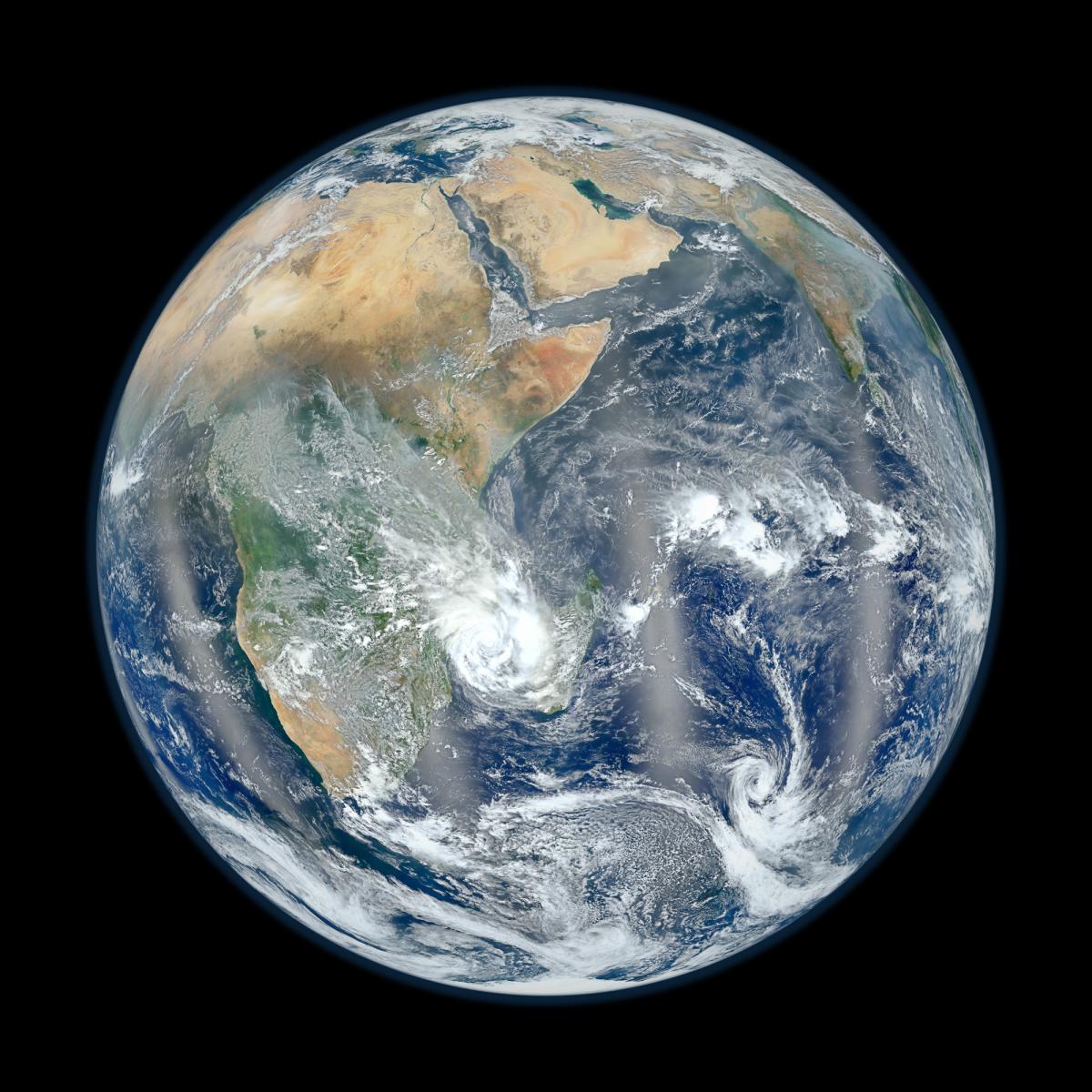 Earth's surface oceans are quite apparent, even from satellite images of our blue marble, but now scientists have found oceans' worth of water are hidden deep in Earth's mantle, locked up in a mineral called ringwoodite.
Earth's surface oceans are quite apparent, even from satellite images of our blue marble, but now scientists have found oceans' worth of water are hidden deep in Earth's mantle, locked up in a mineral called ringwoodite.
Credit: NASA/NOAA
npr.org - by L. Carol Ritchie - June 15, 2014
. . . Scientists have discovered evidence of a vast reservoir of water hiding up to 400 miles beneath the surface.
The discovery could transform our understanding of how the planet was formed, suggesting that Earth's water may have come from within, rather than from collisions with large, icy comets.
The water is trapped in a blue mineral called ringwoodite that sits in the mantle, a hot, rocky layer between the Earth's crust and outer core.
(READ COMPLETE ARTICLE)
CLICK HERE - STUDY - Dehydration melting at the top of the lower mantle
(ALSO SEE RELATED ARTICLES IN THE LINKS BELOW)
Recent Comments